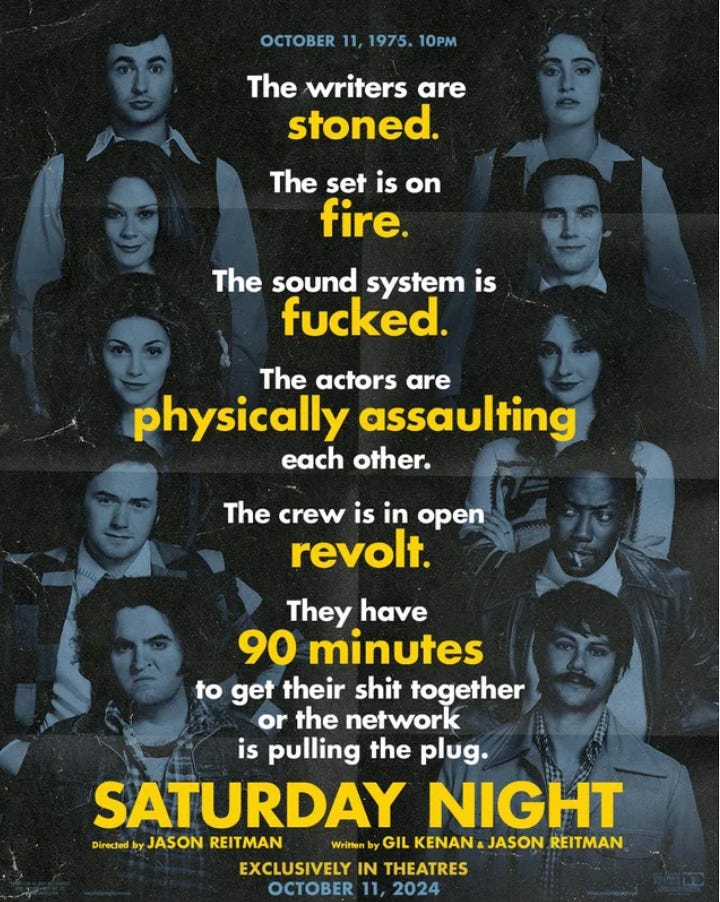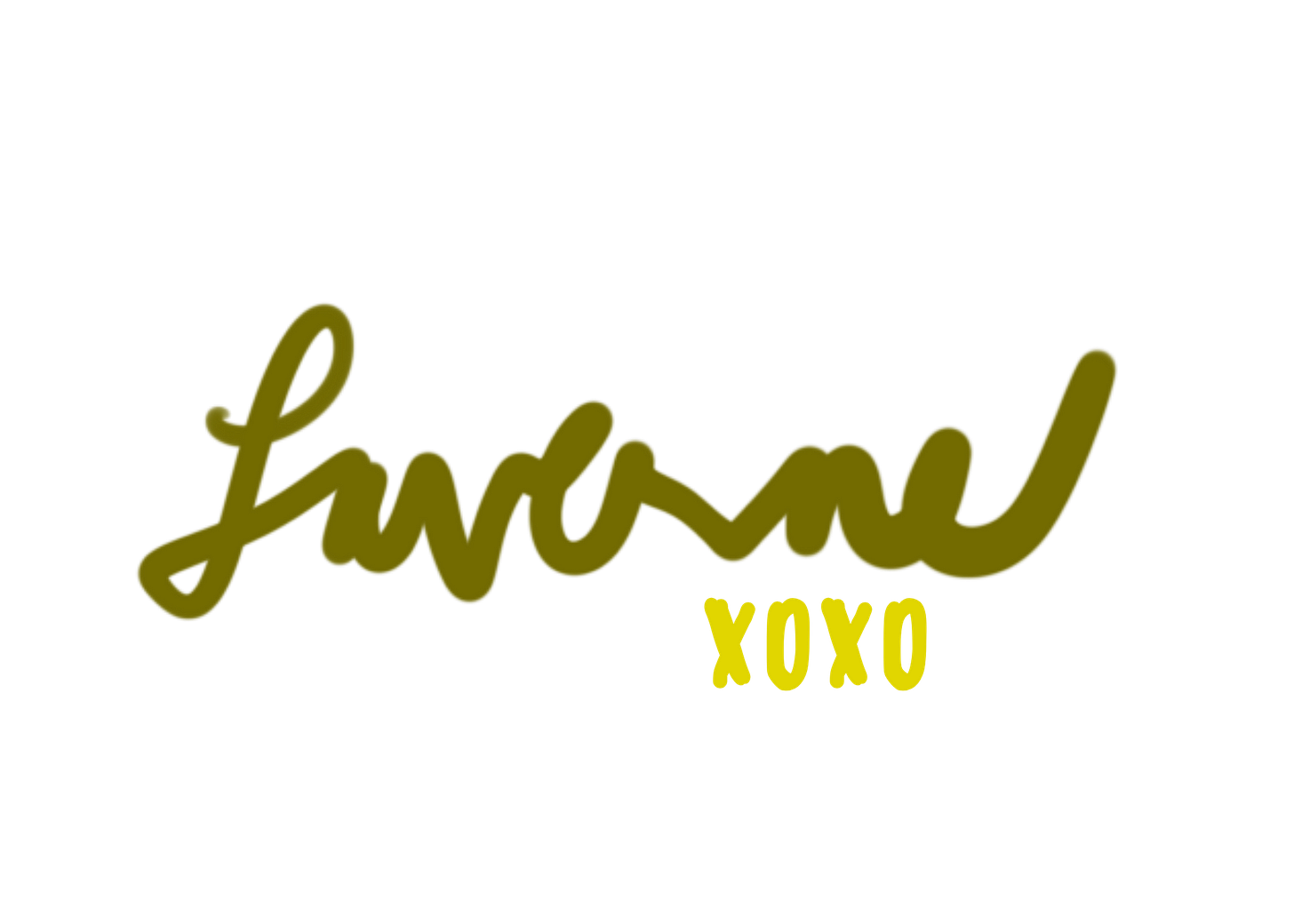If you want to get great at something, try using aggressive deadlines. Aggressive deadlines are a way to confront perfectionism, and leap frog over the resistance to failure.
Now, some of you might be calling bullsh*t on me because I recently wrote about how hurtful arbitrary deadlines are, but this is different. There’s an important distinction between choosing an aggressive deadline that you know you won’t meet versus an arbitrary deadline that has no intention behind it. (Check out the arbitrary deadlines post here.)
What’s cool about aggressive deadlines is that they challenge your relationship with failure. When you lose the fear of failure, you’re free to innovate, which can lead to a lot of bad ideas and some really great, inspired ones. Repeating this process leads to becoming best-in-class.
Here’s what can happen when you set out to do something knowing you won’t meet the deadline:
You stop overthinking your work.
You sharpen your ability to quickly assess and discern.
You rely on partners and empower others, increasing your capacity.
You create energy and momentum.
Aggressive deadlines are not for everybody. If you’re intrigued, keep reading.
The Show Must Go On
Aggressive deadlines remind me of Tina Fey’s experience on Saturday Night Live (SNL). She wrote about it in her book Bossy Pants, which I enjoyed immensely for its humor (of course!) and straight-forwardedness.
Whether she wanted to or not, Tina went on live television every Saturday night. She writes:
“The show doesn’t go on because it’s ready; it goes on because it’s 11:30.”
During the week leading up to the live show, Tina and the team were responsible for writing about 40 to 50 sketches, of which about 8 were chosen to be performed. They could not be precious about ideas, writing, rehearsal or execution. Tina writes:
“You can’t be that kid standing at the top of the waterslide, overthinking it. You have to go down the chute. (And I’m from a generation where a lot of people died on waterslides, so this was an important lesson for me to learn.) You have to let people see what you wrote. It will never be perfect, but perfect is overrated. Perfect is boring on live TV.”
There was no time to be angsty or have a dialogue with the inner critic about what happened with the live show. Why? Because the team had less than 48 hours to start the entire process all over again on Monday. Tina writes:
“You have to try your hardest to be at the top of your game and improve every joke you can until the last possible second, and then you have to let it go.”
They had to be excellent at assessment and rely on each other because clearly, one person could not generate that amount of material in a few days.
Failure Doesn’t Have to Squash You If Only You …
If you’ve watched SNL, you know the show has hit it out of the ballpark as much as it’s had swings and misses. It’s the nature of creativity, and especially fast, live television. Anything can and will happen. BTW, I can’t wait to see the movie about the origin of SNL directed by Jason Reitman.
What a show like SNL and aggressive deadlines do is effectively re-frame your relationship with failure. Failure becomes inevitable, so rather than fighting it, you embrace it as part of the process.
Failure becomes a tool rather than a judgment that stops you in your tracks. Failure allows you to assess what worked and what didn’t.
No failure is devoid of great ideas or moments of excellence. There’s always an element to build off of or expand upon next time. Just like there are elements to discard or use for other purposes. Don’t throw the baby out with the bath water!
Aggressive deadlines force you to be in a relationship with failure rather than do everything to avoid it. When you avoid failure, it controls you and you play small. If you want to be great, get good at failing.
Aggressive Deadlines Are For You If …
I have a client, “Kathy,” who is a big fan of aggressive deadlines. She says she loves how she can get to great ideas quicker. She also finds aggressive deadlines less stressful because it’s ok if she doesn’t meet them. Kathy is committed to getting better at whatever she is doing. This might be you.
The other type of person who thrives under aggressive deadlines is the person who can deal with uncertainty. They are at ease with the “how will this ever get done on time” question because it’s all a discovery process. They operate from an “engaged and detached” perspective. This means to keep going and stop trying to control the outcome.
Finally, aggressive deadlines are for you if you want to grow in your tolerance of failure and uncertainty. In doing so, you will foster a growth mindset that sets you up to scale your learning. It develops your resiliency, creativity and problem-solving abilities. And perhaps, most importantly, it sets you up as a leader who can manage what others consider high-stress situations.
One More Tina Fey Quote:
“What I learned about ‘bombing’ as an improviser at Second City was that bombing is painful, but it doesn’t kill you. No matter how badly an improv set goes, you will still be physically alive when it’s over. What I learned about bombing as a writer at Saturday Night is that you can’t be too worried about your ‘permanent record.’ Yes, you’re going to write some sketches that you love and are proud of forever—your golden nuggets. But you’re also going to write some real shit nuggets. And unfortunately, sometimes the shit nuggets will make it onto the air. You can’t worry about it. As long as you know the difference, you can go back to panning for gold on Monday.”
Bottom Line
Embracing aggressive deadlines can transform how you approach creativity and productivity. It’s about more than just meeting a date—it’s about shifting your mindset. By setting ambitious goals, you force yourself to move past perfectionism and engage deeply with the process, knowing that failure is just a stepping stone toward innovation.
In the spirit of Tina Fey’s experiences on SNL, aggressive deadlines push you to let go of overthinking and dive straight into action. This approach doesn’t allow for the luxury of perfectionism but instead fosters a rapid cycle of feedback and improvement.
Ultimately, aggressive deadlines are a tool for growth, encouraging you to see failure not as a final verdict but as a crucial part of your development journey. If you can embrace this mindset, you’ll find yourself better equipped to handle high-stress situations, drive innovation, and lead with confidence.
Journal Prompts
Here are three journal prompts to help you consider whether aggressive deadlines are for you:
1. Reflect on a time when you faced a tight deadline. How did the pressure impact your creativity and decision-making? Were you able to embrace any failures or setbacks as part of the process? What did you learn from that experience about your relationship with aggressive deadlines?
2. Think about an area in your work or life where you struggle with perfectionism. How might setting an aggressive deadline change your approach? What would it look like to focus more on progress and learning rather than perfect outcomes?
3. Consider a recent project or goal where you felt uncertainty or fear of failure. How did these feelings affect your performance? How could adopting a mindset that views failure as a learning opportunity help you tackle similar challenges in the future?
What’s Coming Next Week
I’ve gotten such a positive response to the blogs about networking that I’m taking on another reader question about how to shift your mindset about expanding and leveraging your network. I honestly get it. In doing further research and self-reflection on this topic I realized that networking steps on one of my core values of equality. Check out Monday’s blog to learn more.
🙌🏾 Questions? Would you like additional support in accessing resilience? I offer private coaching sessions as well as in-person and virtual group work. Reach out directly here to set up a complimentary consultation.
If you’re resonating with what you’re reading, please consider becoming a paid subscriber. What’s that mean?
You’ll receive weekly blogs with tools and resources to help you reconnect with your resilience after experiencing a professional loss or failure so you come back even stronger in your career.
These newsletters are available to read, listen or watch — I’m a big believer in accessibility for all. You can also listen on Apple Podcasts or Spotify. You can also watch on YouTube.
Be in conversation with me and a beautiful, supportive community through comments, threads and chats.
Access to the full archive of posts.
Early bird 20% premium discount for in-person workshops and retreats.















